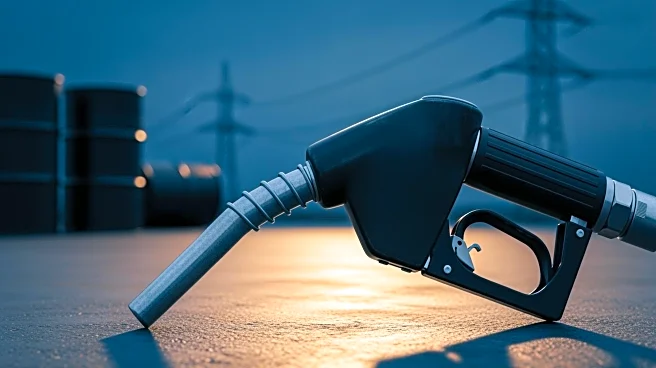What's Happening?
Nigeria, a major oil producer in Africa, is implementing energy reforms to manage diesel costs and reduce reliance on imported fuels. In October 2025, the Nigerian government introduced a 15% import levy
on gasoline and diesel to protect domestic refineries, including the Dangote Refinery. This measure is part of broader budgetary reforms aimed at stabilizing the downstream petroleum markets. The strategy focuses on developing a market where diesel prices reflect actual production costs rather than global volatility, promoting energy self-sufficiency.
Why It's Important?
Nigeria's approach to managing diesel costs is significant for its potential to enhance economic resilience and competitiveness. By investing in domestic refining capacity, Nigeria aims to reduce fuel price fluctuations and foster economic progress. This strategy serves as a model for other African countries seeking to stabilize fuel costs and boost their economies. Low diesel prices are crucial for manufacturing costs, consumer pricing, and overall economic prosperity, highlighting the importance of energy self-sufficiency.
What's Next?
The long-term goal of Nigeria's energy reforms is to stabilize fuel costs through domestic manufacturing, potentially leading to lower prices at the pump. Other African countries may look to Nigeria's strategy as a blueprint for reducing reliance on imported petroleum and fostering economic growth. Continued investment in refining capacity and policy adjustments will be key to achieving these objectives.
Beyond the Headlines
Nigeria's energy reforms highlight the broader implications of energy policy on economic development and social welfare. The focus on domestic production underscores the importance of strategic planning in achieving energy independence and economic stability, with potential benefits extending beyond fuel costs to broader economic indicators.











